Everything you need to know about benches
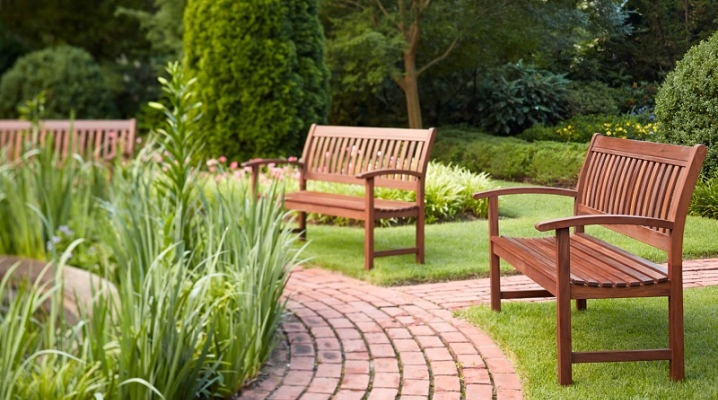
It is difficult to imagine city streets, squares and parks without the usual comfortable benches... In the hustle and bustle of everyday life, they seem to offer to stop, reflect, admire the surrounding view. In the article we will tell you what benches are, how they differ from benches, how you can make them yourself.
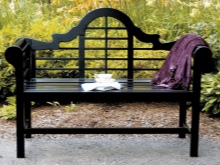
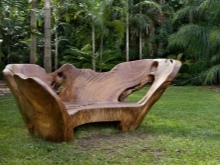
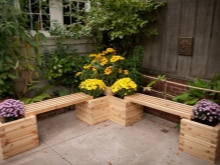
What it is?
Benches, along with other small architectural forms (lanterns, urns, fountains), set a special style for the park area, transforming it from a wild plantation into a cozy corner of nature. But, despite the fact that it is more common to meet benches on the street, they belong to a piece of furniture on which you can sit. The narrow seat is designed for several people. The height of the structure can be the same as its depth or be slightly higher.
Some models are equipped with functional additions: tables, awnings, lanterns. In suburban areas, you can find products suspended on chains or placed on runners, which allows them to swing and immerse the guests in a deep relaxed state.
For greater comfort, swing benches are complemented with mattresses, pillows, blankets. They are protected from the sun with awnings, and from insects - with mosquito nets.
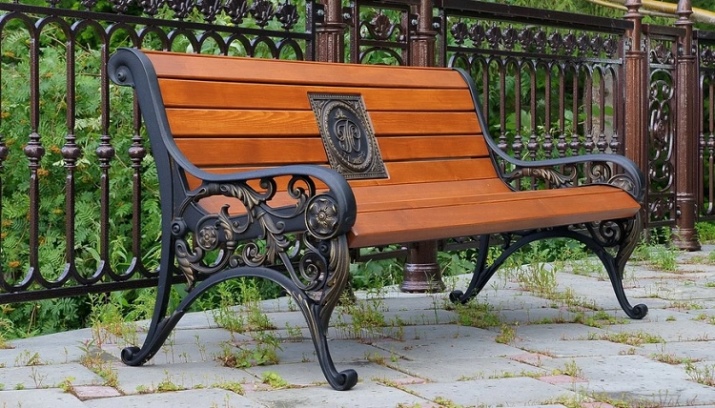
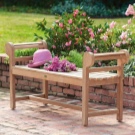
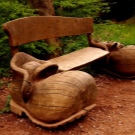
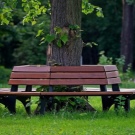
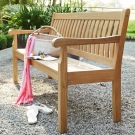
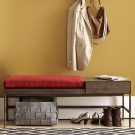
Primary requirements
Requirements for benches are set out in GOST 19917-93, which was signed by representatives of eight post-Soviet countries in 1993. They cover design features, safety, reliability, material specifics of these products. The GOST takes into account the following requirements:
- convenience for a seated person;
- complete safety;
- selection of a material that is resistant to precipitation and temperature fluctuations;
- non-toxicity of coloring compositions;
- reliability and durability;
- tolerance to mechanical stress;
- aesthetically pleasing appearance.
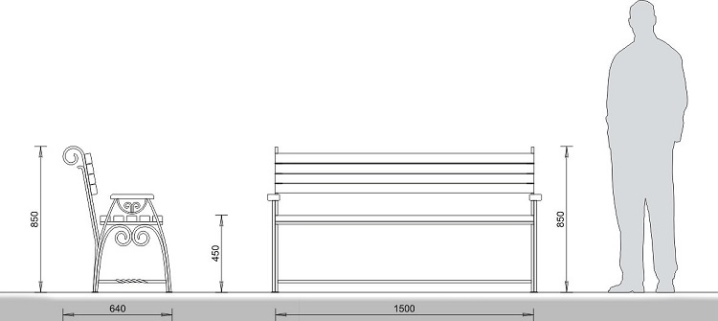
The above requirements are met by frames made of steel, concrete, cast iron, complete with seats made of hardwood. In trading houses, airports, train stations, products made of durable modern plastic are often used.
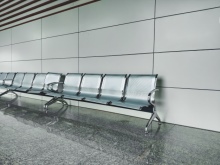

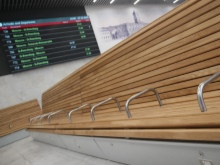
How are they different from shops?
Today, many do not make the difference between a bench and a bench and do not even think about it, but there are differences, and they are obvious. To understand them, let's go back to the origins of understanding each piece of outdoor furniture separately.
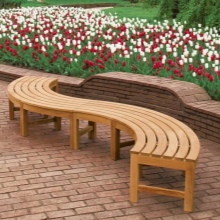
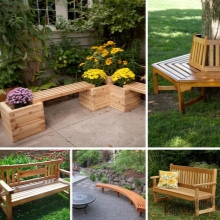
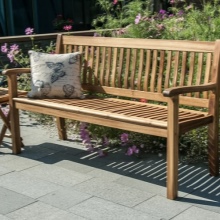
Shop
In ancient times, in Russian huts, benches were solid long wooden seats on two supports, without a back and handrails.... They could perform many functions. There was a shop for uninvited guests at the front door, and the dear guest was seated closer to the "red" corner with icons.
They sat on the benches, slept with the whole large family, they put things on them, as if on shelves.
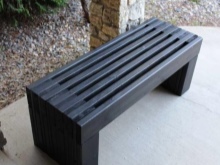
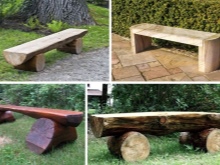
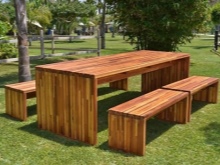
Bench
Initially, the bench had small low shapes and served exclusively as a footrest. Over time, people began to sit on it, people appreciated its portable capabilities, which the shop could not provide them. Gradually, the bench was modernized, made taller, longer, wider, added a backrest, armrests, began to display in yards and gardens... The result is a comfortable outdoor furniture look.
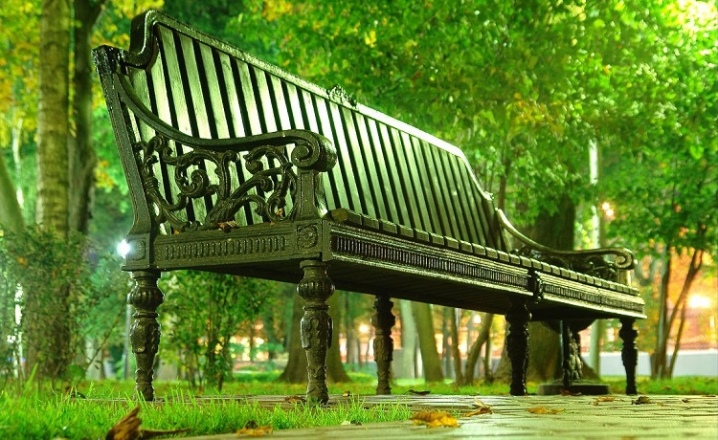
Modern benches and benches have changed somewhat since our ancestors used them: new materials have appeared, designers have worked on their appearance. But the difference is still noticeable.
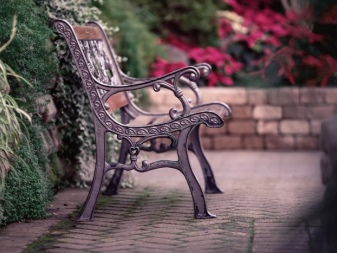
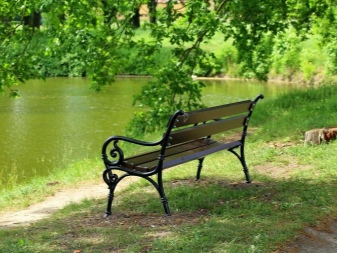
Today both products have the following differences.
- A bench is a more powerful and coarse product, devoid of decoration. The bench looks sleeker, it can be decorated, for example, with forging or wood carving.
- The bench is a rigid long base for sitting, without any additions. The benches are equipped with backs and sometimes armrests.
- The bench has two reliable supports dug into the ground. The bench stands on four legs, it can be moved and easily dismantled.
- It is more comfortable to sit on a bench with a backrest and armrests, you can spend more time on it than on a bench without a back support. Therefore, benches are installed in places of rest, waiting: in parks, train stations, playgrounds, and benches - at stops, along the streets.
Now, knowing the differences, we can pay attention to park furniture and give it the correct definitions.
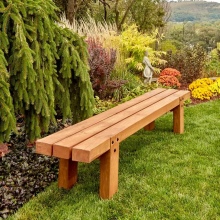
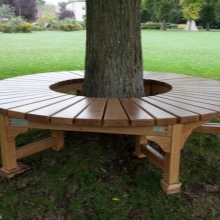
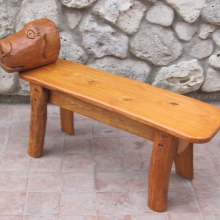
What are they?
Over the long period of their existence, benches have acquired different forms and additions to its traditional appearance. They are conventionally divided into two large categories: stationary and mobile.... The first option can be found on city streets, park alleys, train stations. Portable models are convenient on balconies, verandas, terraces, gazebos, as well as in closed rooms of houses and apartments.
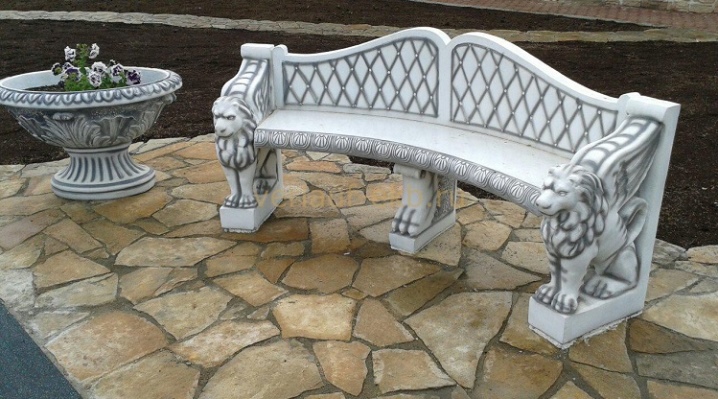
The material requirements for these two categories are different. Public outdoor benches need to be strong, durable, able to withstand bad weather and even vandals. Products used in the private sector can always be hidden in the house from the weather, they do not have to consist of concrete, stone or metal. Let's take a closer look at what modern benches are, what materials they are made from.
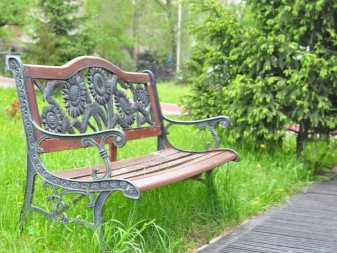
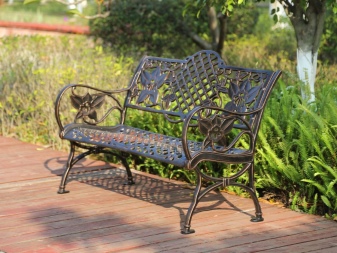
Wooden
Wood products are harmoniously integrated into the environment of green spaces. They become a natural extension of a garden or square. In most cases, combined benches - wooden seats are mounted on an iron or concrete frame. But sometimes the model is made entirely of wood, with the participation of slabs, logs and even roots.
Benches, intended for all-season use in outdoor conditions, are made of dense tree species: oak, larch, acacia, hornbeam, walnut, Karelian birch. For a summer residence, you can make outdoor furniture from a cheaper material, for example, pine.
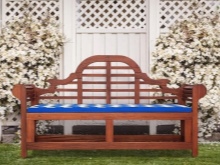
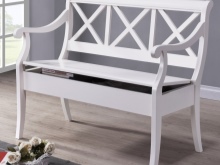
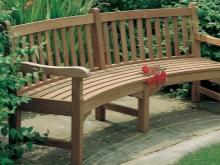
In order for the benches to retain their original appearance for a long time, the wood is treated with antifungal compounds and protected with paint and varnish coatings. Here are some examples of wooden products:
- an unusual two-sided bench made in the form of a half-open book;
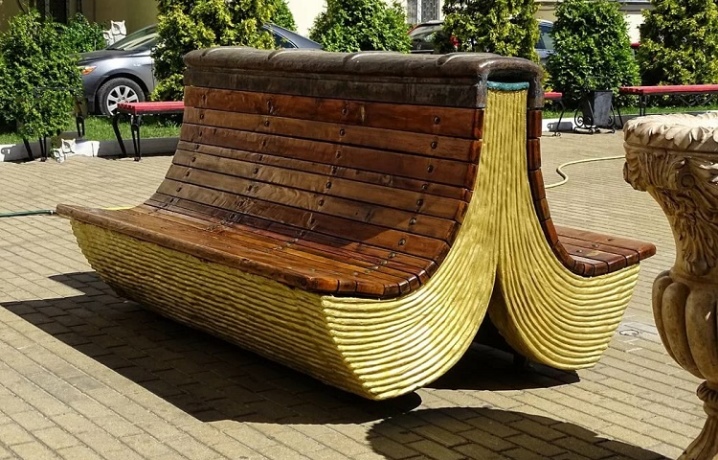
- simple straight model from logs, without back and sides;
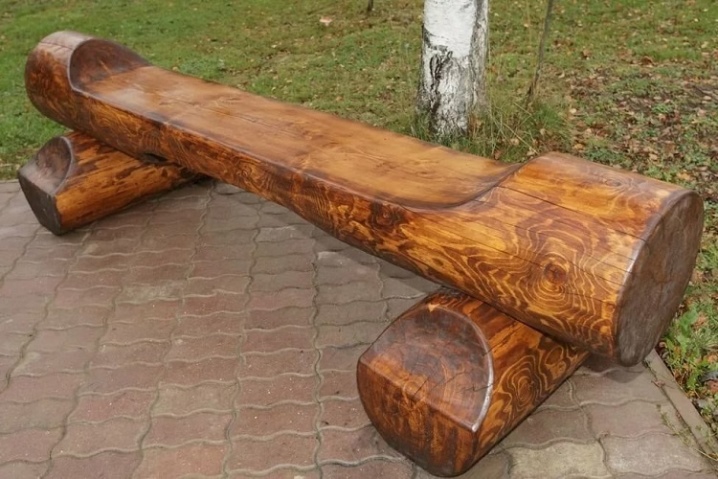
- parametric plywood product;
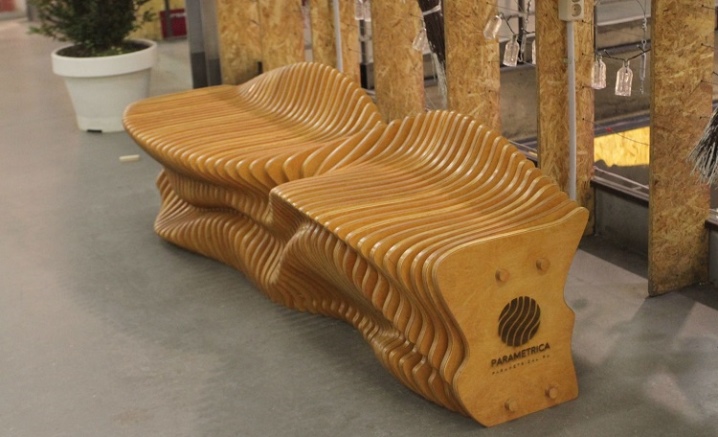
- a bench with a back and armrests assembled from tree roots;
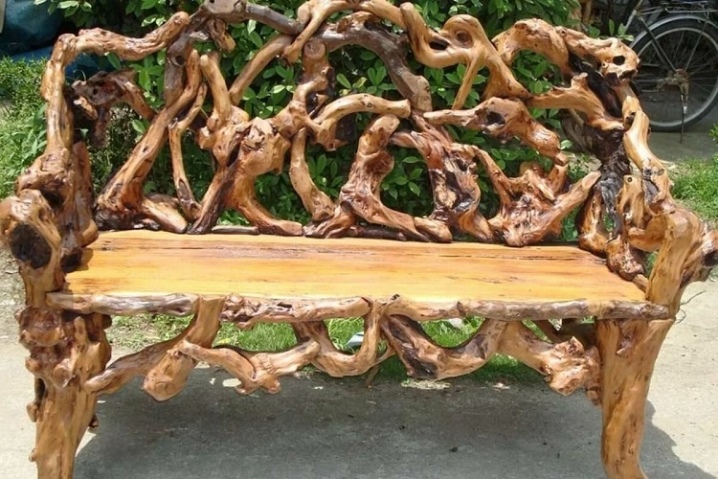
- low garden model made of slabs.
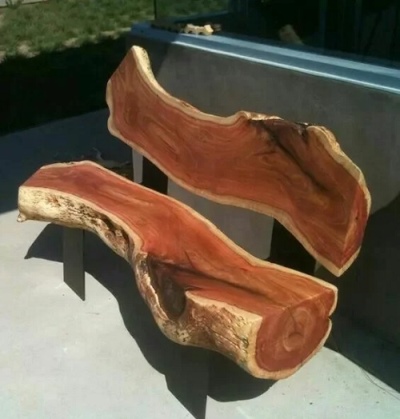
With metal elements
Metal - strong and durable material. Such characteristics make it possible to make reliable, shock and weather-resistant outdoor products out of it. Cast iron or galvanized steel can often be found on bench frames or legs. For seats, softer and warmer coatings are used: wood, plastic, natural and artificial leather. Openwork forged products are especially extravagant. They have a high cost, but despite this, many acquire elegant benches for their suburban areas, sometimes as a set for a wrought-iron gazebo, arch, balcony or awning:
- a bench with cold-forged elements is made of soft materials that make the seat and back more comfortable;
- beautiful forged models with butterfly backs;
- small architectural forms with the participation of forging are created to decorate city blocks.
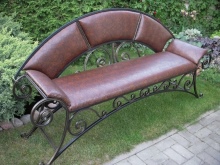
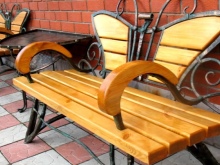
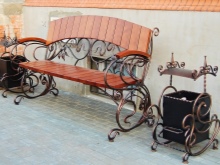
Plastic
Plastic benches are lightweight and inexpensive. The material does not rot from rain and does not crack in the sun. But in winter it is better to bring them indoors - severe frosts can cause cracks. The convenience of plastic products for suburban areas lies in their portability. The benches can be easily moved to any place: following the shadow, to the garden, to the recreation area, to the playground, to the house or garage. Modern types of plastic can be quite durable and at the same time plastic, these properties allow them to be used on city streets, near water, in places of recreation for citizens:
- chaise lounges;
- for a shopping complex;
- products for city squares and boulevards.
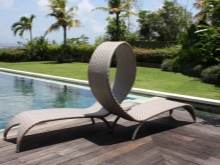
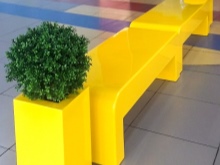
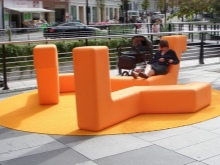
From scrap materials
A bench for a summer residence can be made from everything that can be found in the "storerooms": old crib, chairs, pallets. For the manufacture of such furniture, special skills are not required. And those who have talents create real masterpieces from wood or metal. They work in garages or in their own small workshops, without any factory conditions. Some benches created by home craftsmen can beautify with expensive landscaping. In the photos you can see the variety of homemade products:
- wood carving, handmade;
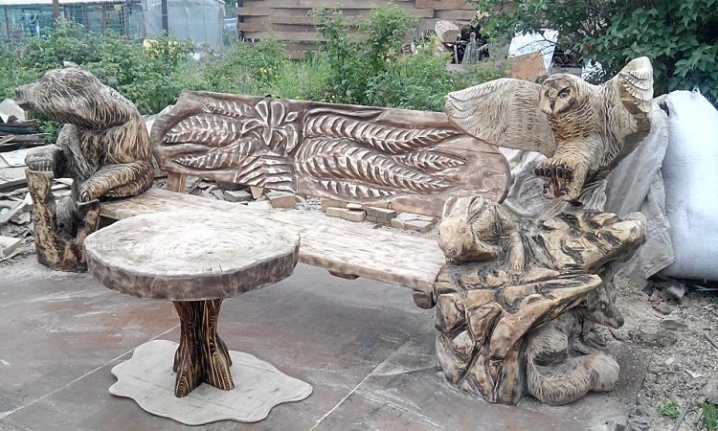
- country furniture for a recreation area made of pallets;
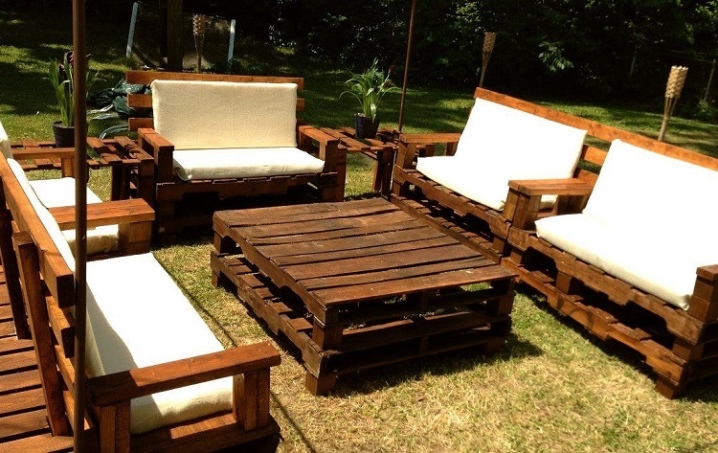
- double product made of flexible branches;
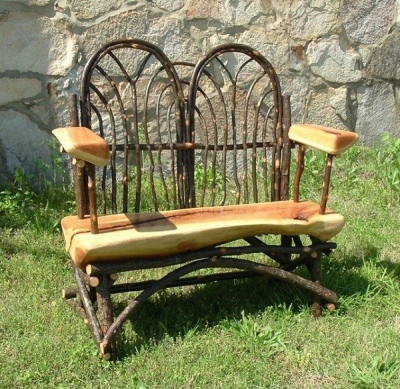
- sofa bench assembled from waste material;
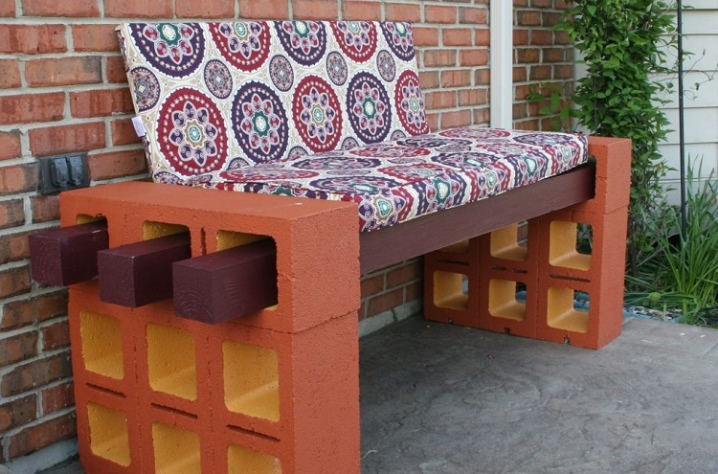
- Provence style seating made up of old chairs;
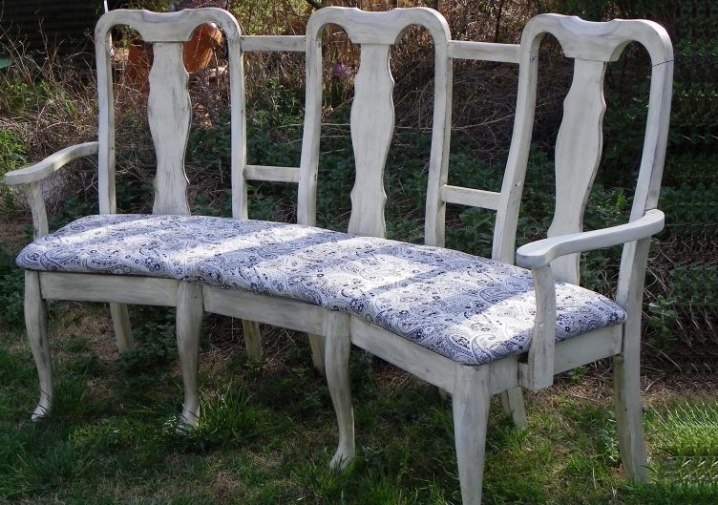
- forest bench made of hemp.
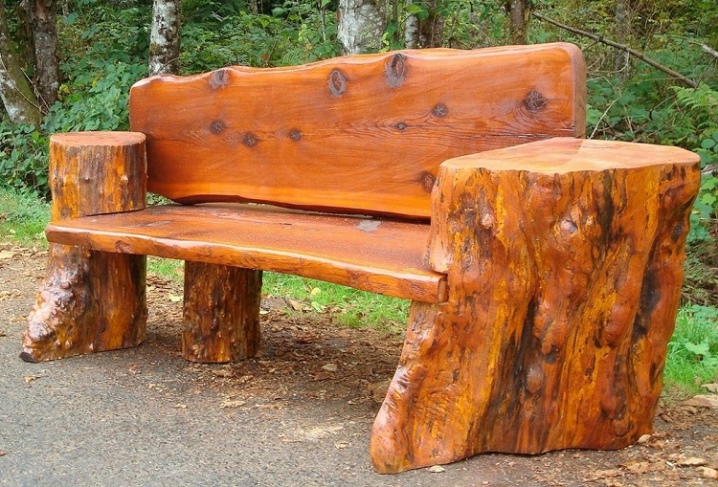
Stone
The stone belongs to natural materials and is perfectly adapted to the green spaces of gardens and parks. Benches made of marble, granite, sandstone come to us with a thousand-year history - this indicates the strength, reliability and durability of the material... For the manufacture of benches, natural and artificial, polished and wild stone are used. We offer several examples of stone products:
- a bench made of wild stone;
- a product using concrete, made to look like a stone;
- carved model from gray granite.
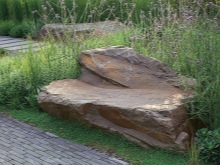
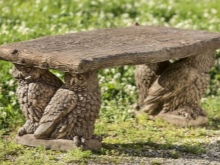
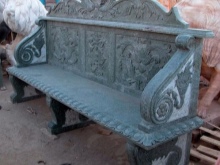
Rattan and Vine Benches
Rattan furniture is made from artificial and natural materials, and only natural vines are used. For the frame of the benches, lightweight but durable aluminum is used that can cope with heavy loads. The products are used for verandas, balconies, terraces and open spaces in the fresh air. Artificial rattan benches can be left outside until the very cold. They are not afraid of moisture, do not fade in the sun, and are not easily damaged.
Natural material is more capricious: it swells from rain, cracks from heat, it should not be placed near hot radiators.
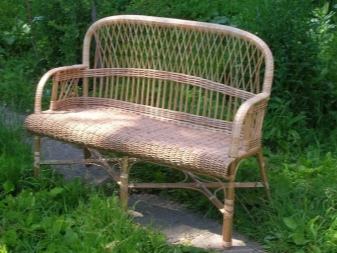
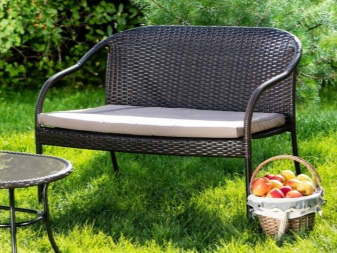
Examples of rattan furniture:
- natural rattan bench, openwork weaving;
- a beautiful rattan product, complemented by a mattress and pillow;
- attractive and tactile vine furniture.
In addition to materials, different types of benches differ markedly from each other. formswhich can become more complicated functional additions: tables, awnings, lighting fixtures and other elements. According to their design features, the benches are divided into the following types.
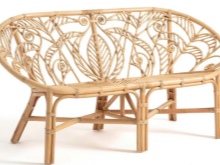
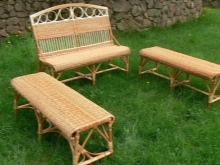
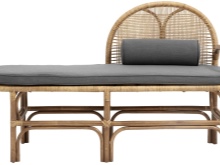
With tables, side tables and drawers
The benches connected to other types of furniture are comfortable and practical, their functionality doubles at once. Such designs are good for both outdoors and indoors. You can always put your purse, book, newspaper, phone on the table. A bench with a bedside table, for example, in the hallway, is useful for many things: you can put keys, an umbrella, gloves, sunglasses, shoe care accessories in the cabinet, and you can put a landline phone on the surface.
See how versatile the benches are with additional furniture.
- Multifunctional corridor product with shelf and drawer. Storage space is also provided under the seat.
- Bench with a table for two interlocutors. You can put a cup of coffee or glasses of wine on the countertop.
- The design, located in the recreation area and endowed with a large box, allows you not to take out mattresses, pillows, blankets every time, but leave them right there, inside the bench for which they are intended.
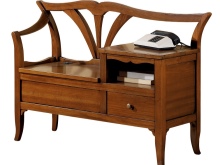
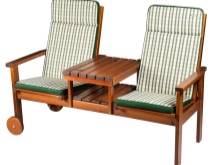
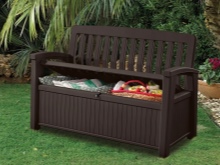
Swing benches
Such models are good not only for children, they allow adults to plunge into a phase of deep relaxation and have a good rest. Swinging products are of two types: suspended from supports or placed on runners. For greater comfort, the benches are equipped with pillows, awnings, mosquito shelters:
- a suspended structure made of natural material, protected by a textile awning;
- do-it-yourself bench for a summer residence;
- elegant construction on forged runners for two vacationers.
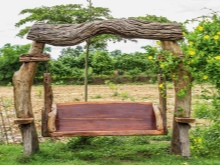
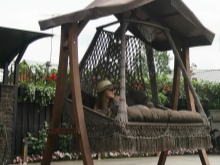
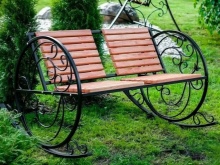
Tents
Tent benches are protected from the scorching sun by their own roof, which maximizes the possibilities of a good rest. Models with a mosquito net are especially convenient.
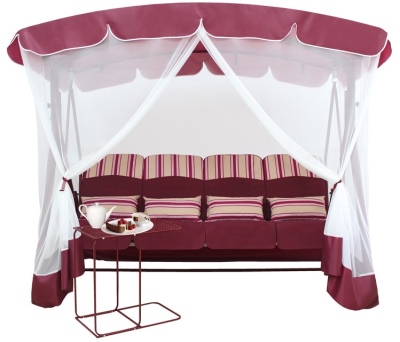
Sculptural benches
The most attractive types of benches are sculptural products. They are made from different materials.: wood, stone, plaster, metal, polystone. Depending on the plot, such structures can be placed on a park alley, a playground or in a garden near a fountain. Looking at the examples, it's easy to see how delightful they are:
- cheerful heads, "emerging" from the sidewalk, hold the shop;
- our contemporaries look unusual on benches with a sculptural image of people from the past;
- beautiful, pleasant to the touch and with a natural energy charge, sculptural benches made of wood.
In addition to the variety of benches listed above, one can also note transforming benches, rolling products on wheels, structures with flower beds and lanterns.
A simple bench can be so varied that it can be used with pleasure to decorate any suitable area.
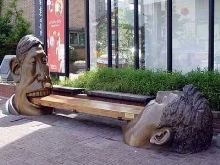
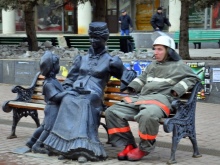
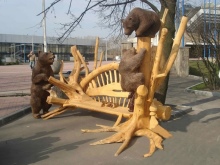
Design options
Since the bench is a small architectural form, its appearance lends itself easily to stylization. It can decorate baroque landscaping, modern squares or futuristic corners that simulate the future. We suggest that you familiarize yourself with a selection of benches made in different stylistic directions.
- Metal and natural unadorned wood are used for the manufacture of loft products.
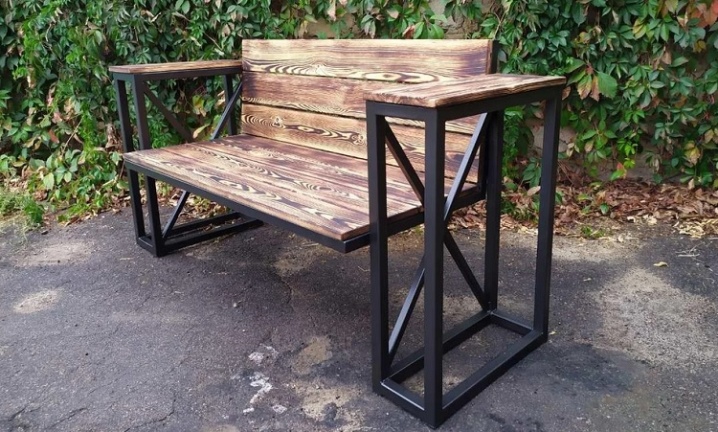
- The combined benches (forging and wood) in the Art Nouveau style are very beautiful. The plot image of a lady with dogs sitting on a handrail under an umbrella looks especially extravagant.
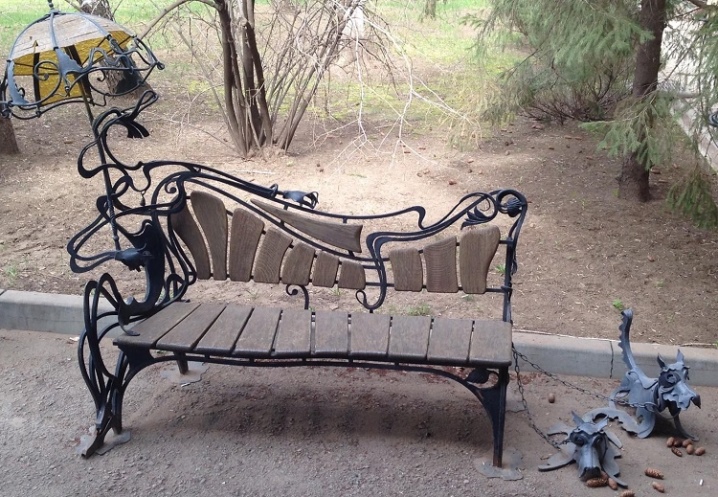
- Metal model in Art Nouveau style.
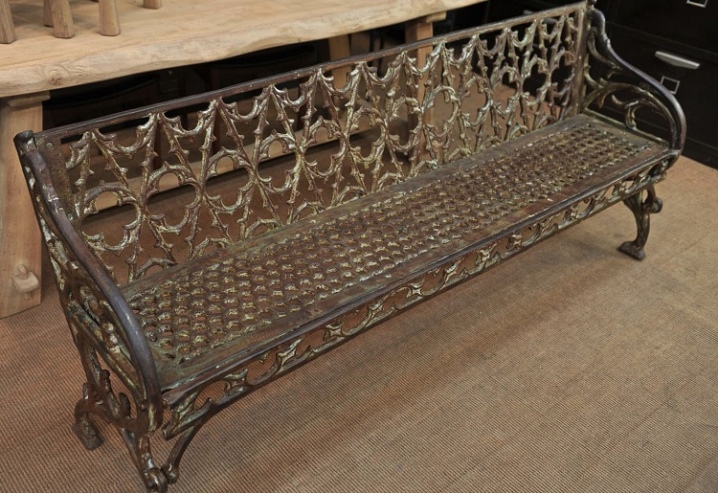
- And this is a classic - a simple, elegant shop.
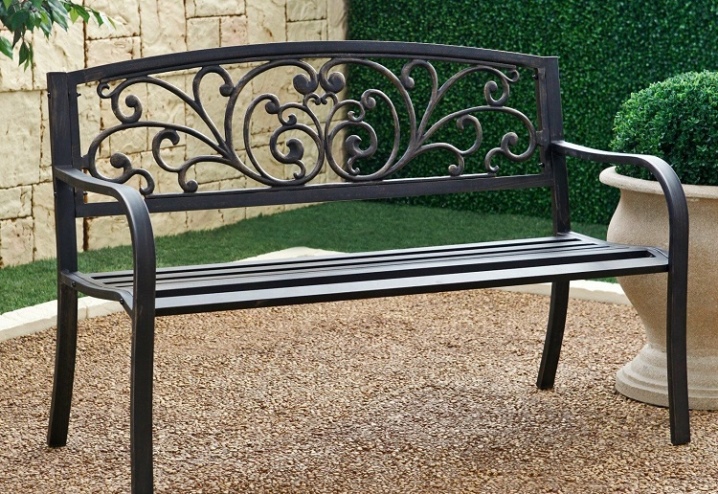
- Antique shabby chic bench.
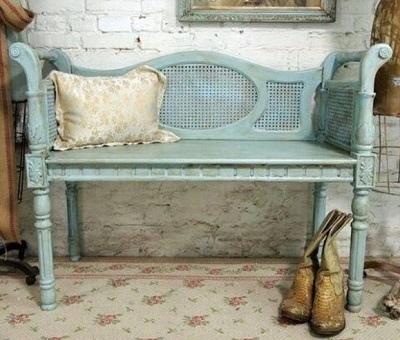
- Good old provence. The white bench is complemented by a curbstone.
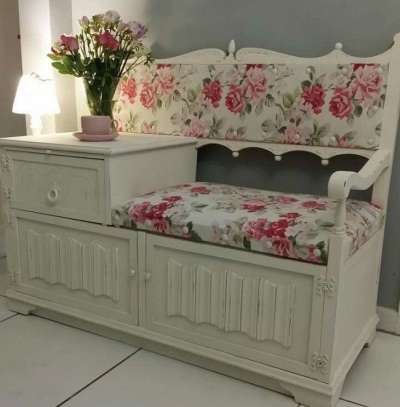
- Luxurious seats in the imperial style (empire style).
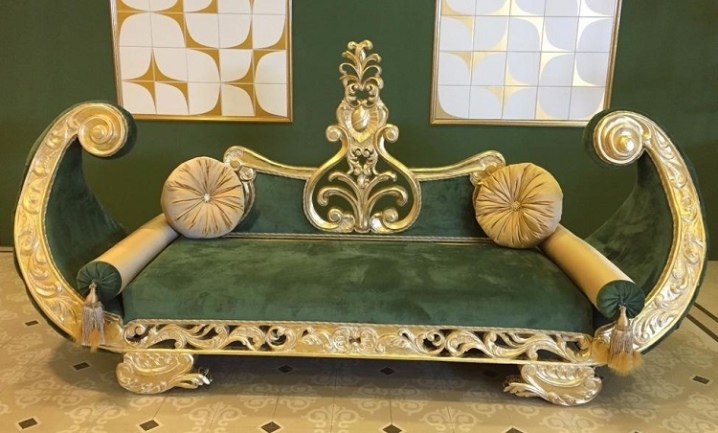
- The carved product represents the Gothic trend.
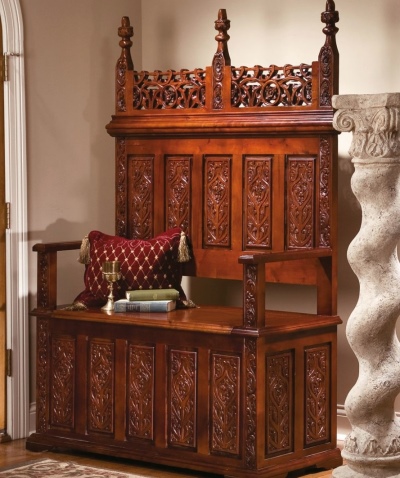
- A bench made of wood and metal in the industrial style seems to float in the air.
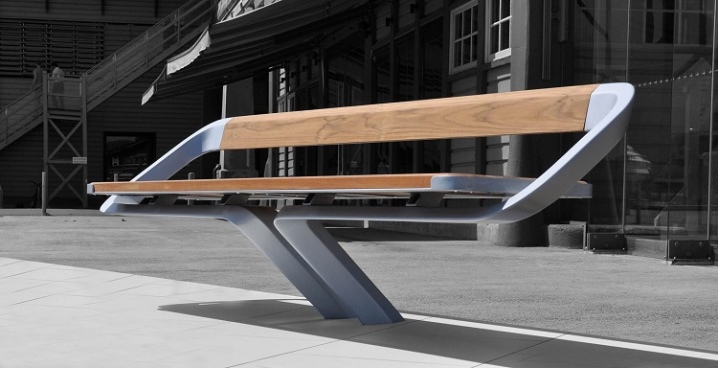
- Direction of bionics. The lines of benches, walls, lamps are peeped from nature itself.
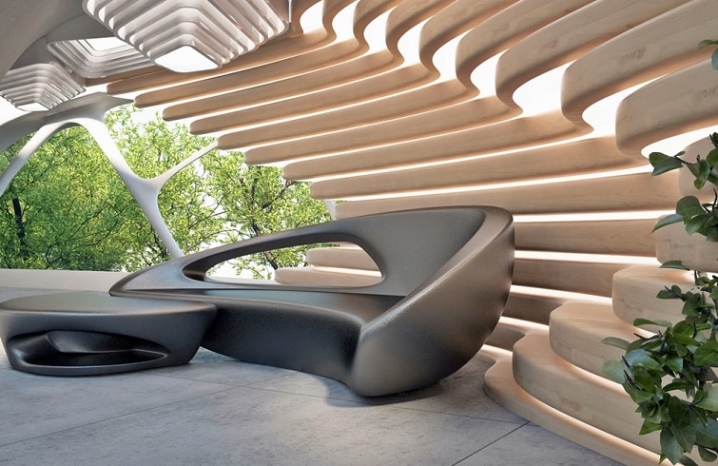
- Representative of futuristic furniture. The product consists of leather elements fixed to an aluminum frame.
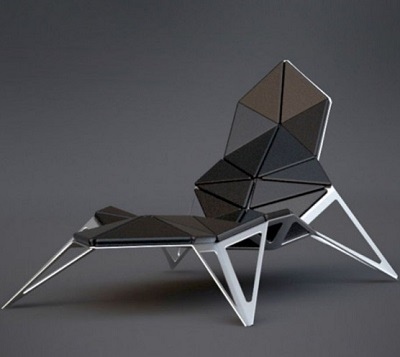
- A laconic high-tech bench.
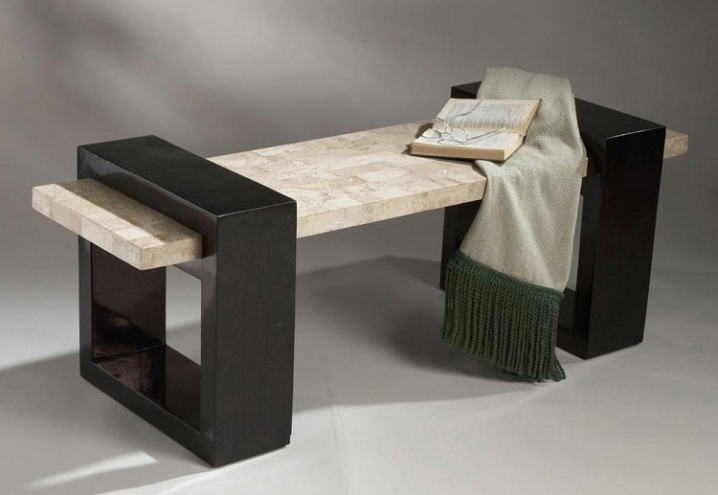
Secrets of choice
The choice of a bench depends on its purpose.
- For city alleys, squares and parks, they choose durable stationary models made of cast iron or concrete, which will withstand any bad weather and will not break even under the most careless riders.
- To decorate a suburban area, you should select products that are in harmony with other objects in the local area, for example, forged benches, models with an arch. If there is a log house on the site, a seat in the form of logs will be a good option.
- Suspended swinging structures are perfect for a recreation area; they can have an awning from the sun and a protective insect screen. Tents with several benches are also appropriate here.
- Bright seats or models with cartoon characters, animals, plants, butterflies, in the form of cars and boats are installed on playgrounds.Subject products delight children and awaken their imagination.
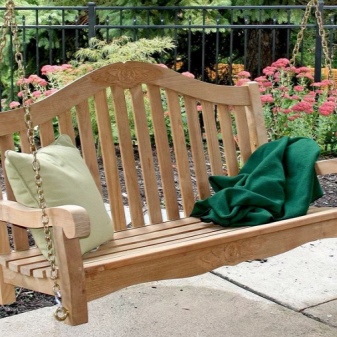
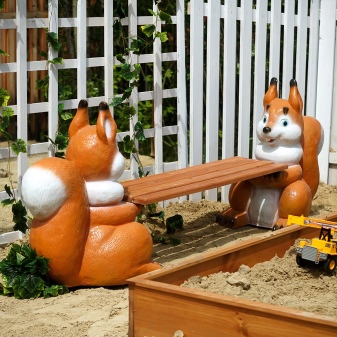
If you need a bench for work in the garden, you can choose an upside-down model - on it you can rest well and weed the weed. They try to equip verandas, pergolas, terraces, balconies, gazebos with solid outdoor furniture made of artificial rattan. It is possible not to bring it in until late autumn, periodically knocking down the dust from the hose. For summer cottages and country houses, portable benches or products on wheels are convenient. They will obediently follow the summer resident even all day.
Near tourist destination there is a special kind of benches: lightweight, durable and quickly folding. In areas with a large deficit of free space, convertible benches that can be easily laid out in a table with benches, or a folding model on the wall, which is lowered only as needed, will come in handy.
When the tasks are set and the bench is selected, you should pay attention to its strength, reliability, durability and evaluate the aesthetic appeal of the product.
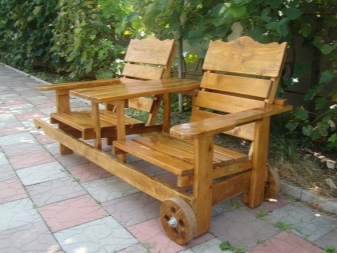
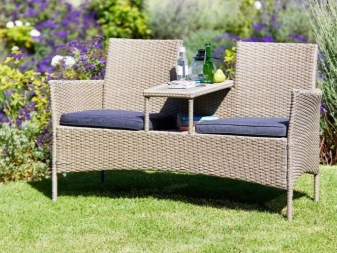
How to do it?
Bench - not too complicated piece of furniture, it is quite possible to make it yourself. We propose to build a wooden bench with a table.
- Before starting work, you need to have an idea of where it will be located, measure the free space and proceed to create a circuit. On the drawing of the future product, the dimensions of the overall structure and each part are noted separately. Next, they collect tools and materials, we need beams and boards.
- When the preparatory stage is over, you can go directly to work. According to the scheme, they mark and cut all the parts. Put down the numbers of each element, as indicated in the drawing.
- They begin to assemble the bench from the sides. The legs are stuffed onto the handrails, consisting of two slats. This workpiece is attached with one end to the extreme beam of the back, and the other to the front beam of the frame. When both sides are fixed, they begin to engage in intermediate bars located at the back of the structure. Having installed them in the area of the backrest, they begin to cover it with boards.
- In the center of the seat, two transverse slats are installed for the future table, then a frame is erected, which takes 1/3 of the bench. When everything is ready, boards are fixed to the seat and table.
- Installation of the entire structure is carried out using bolts and screws.
At the end of the work, you can use paints and varnishes to protect the bench and give it an aesthetically pleasing look.
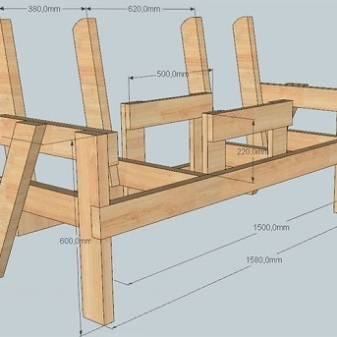
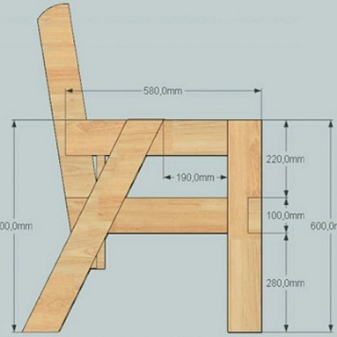
How to place in the garden?
Even decorative benches should fulfill their functional duties and be in those places where they will be useful. The classic option is to install benches along shady garden alleys, where it is easy to hide from the scorching sun.
If a designer has worked on the garden, and there is something to see in it - fountains, decorative waterfalls, multi-tiered flower beds, streams and bridges - in such places, benches are also extremely appropriate. You can admire the blooming garden for hours, feeling the coolness coming from the water.
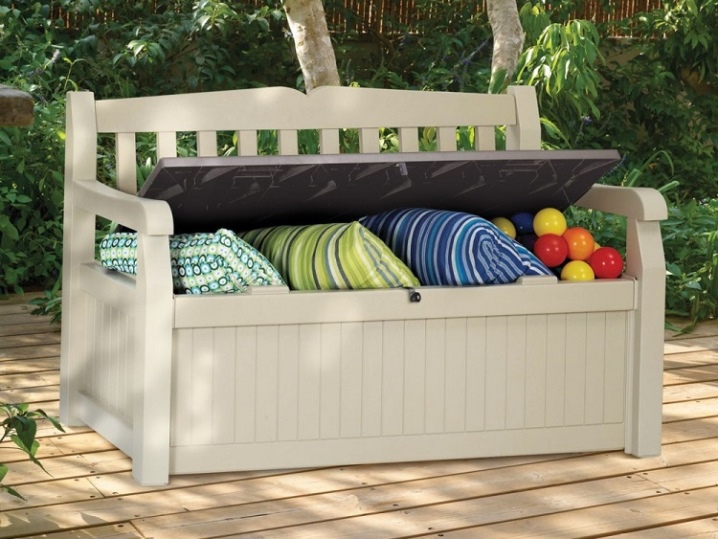
An unusual beautiful model of a bench will look great in the center of a green lawn. But if the grass is not resistant to trampling, it is better to lay a path to the bench. Benches are installed in the garden near the gazebos, under awnings in the barbecue area, where you can not only relax, but also meet friends and have fun with them.
The shops are needed wherever you experience the pleasure of contemplating the surrounding view.
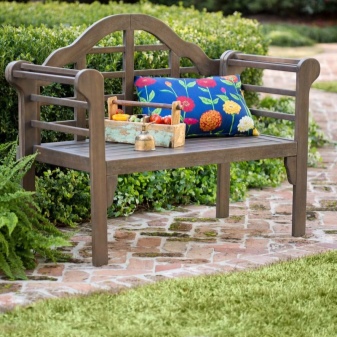
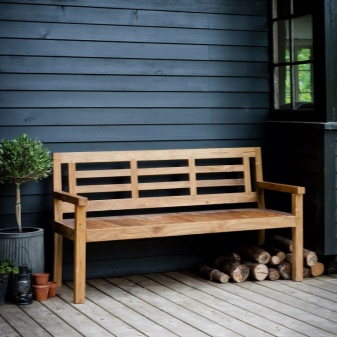
Stylish examples
Outdoor benches and those designed to decorate a room can look equally stylish. We offer you to familiarize yourself with a selection of beautiful spectacular products.
- A series of elegant indoor benches in the form of animals: panther, horse, tiger.
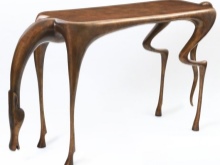
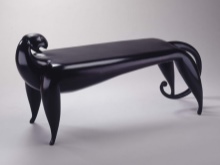
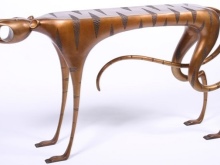
- Another openwork bench that can decorate any living room.
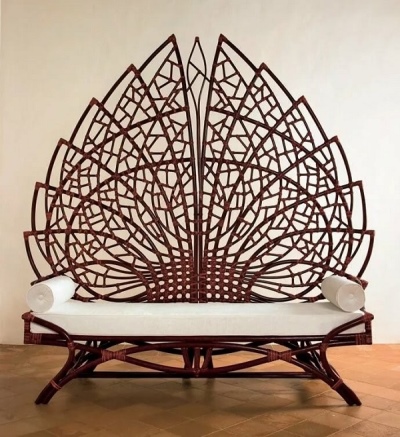
- An extravagant sophisticated piece that is durable enough to withstand outdoor conditions.
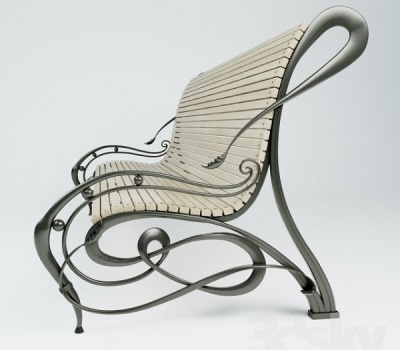
- The bench with a luxurious peacock and oriental notes resembles a sailing boat.
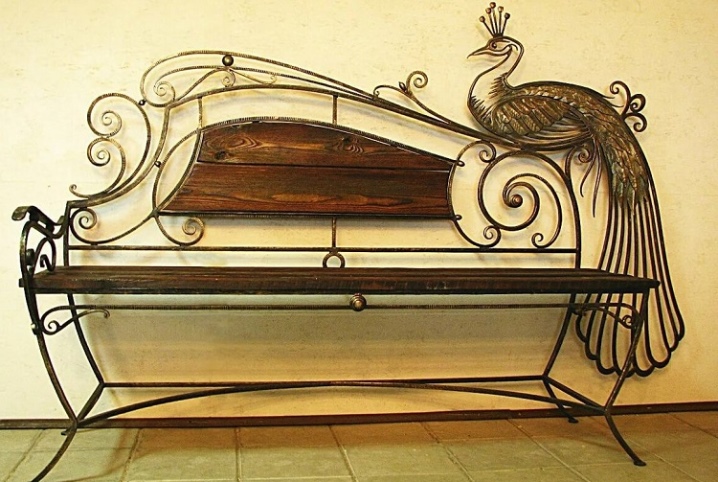
- The product contains a figured back and armrests made of charred wood. A forged frame adds elegance to the design.
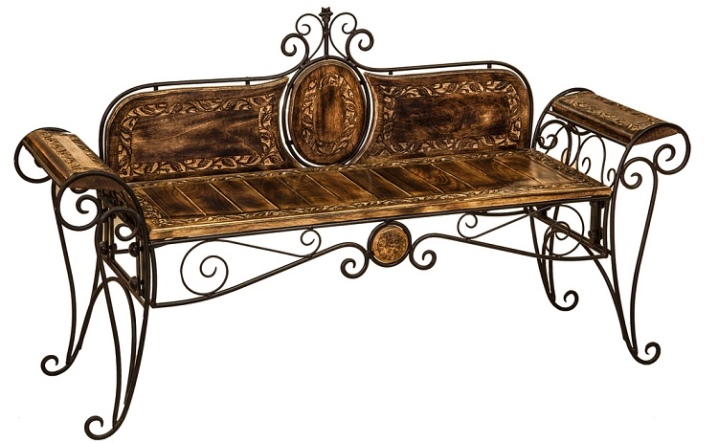
- The spectacular bench seems to be hidden in a thicket of metal plants.
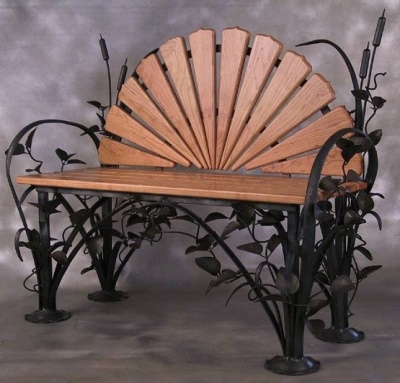
For information on how to make a garden bench for a summer residence with your own hands, see the next video.













The comment was sent successfully.